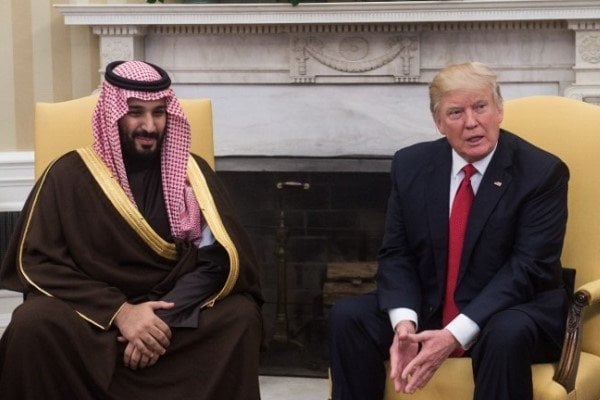The US government has announced the re-imposition of all sanctions against Iran which had been cancelled within the framework of the nuclear deal known as the JCPOA. Donald Trump’s administration officially announced that all sanctions that had been lifted under the 2015 nuclear deal are re-instated. Meanwhile, the US Treasury Department announced that 700 individuals and entities would be included in the blacklist.
The United States however granted waivers to temporarily allow eight nations to continue importing the Iranian oil after it re-imposed sanctions on Tehran, Secretary of State Mike Pompeo said Friday.
Now, the question is that what would happen to relations between Tehran and Washington with the return of US sanctions? Would Iran be forced to negotiate with the United States after these sanctions? Or Iran will continue its interaction with the remaining parties of the nuclear deal until the Trump’s term ends?
Khabar Online has conducted an interview with political analyst Vahid Gharavi in this regard. What follows are excerpts of his answers:
The history of Iran-US relations over the past forty years has been full of tension and hostility. In the current situation, especially since the beginning of Trump’s term, and Iran’s emergence as a regional power, new dimensions of such hostility have unfolded. Meanwhile, Washington’s withdrawal from the nuclear deal has increased this hostility.
Iran’s successes in Syria, Iraq, Lebanon and, to some extent in Yemen, and the withdrawal of Takfiri terrorist groups, which were supported by Washington and the regional reactionaries, next to the defeat of the Saudi government’s wicked policies in this sensitive area, pushed Riyadh closer to the US. As a result, the anti-Iran policies of Americans took a new form. In fact, the pressures of the Trump administration on Iran and the intensification of sanctions, especially in the oil and gas areas, are now mainly ordered by Saudis and Israelis.
The re-imposition of US sanctions was put on the agenda as of May 2018. One can say there is nothing left to be implemented as of November 4. These days we are hearing that some giant western and even non-Western companies including Chinese oil firms are not willing to cooperate with Iran. Chinese macroeconomic benefits in trade with the United States have even led to a significant reduction in non-oil exports to China, and some Chinese banks have ended their banking cooperation with Iranian parties.
Of course, considering the need for fuel market in winter and the problem of oil price growth, it is not possible to cut down Iran’s oil exports to zero.
As Tehran is dealing softly with the US plan to paralyze the country’s economy, it seriously pursues diplomatic efforts to keep Europeans committed to the nuclear deal.
Over the past few weeks, there have been numerous consultations between the Iranian experts and EU officials in Vienna and Brussels to ensure they fulfill their promises.
Iran-US Row Big Test of Independence for Europe
Undoubtedly, the fulfilment of the European leaders’ promises would encourage Iran to stay in the nuclear deal, and it is very important for the EU. In fact, it is a test of independence for Europe as a powerful political-economic bloc against America’s Trump. This comes as the US president has not only withdrawn from the JCPOA, but also has broken his promises to his long-standing partners in Europe, and, in addition to leaving the Paris Agreement, he has imposed unusual tariffs on European goods to make the split deeper.
Iran No “Saviour” for Iran
According to Iran’s Central Bank governor, during the recent negotiations in Brussels, the financial channel proposed by Europe has been discussed in detail by the parties. Accordingly, the desired financial channel will work to facilitate and remove barriers to monetary exchanges between Iranian and European exporters. Iran’s potentialities and experiences throughout the past years have shown that we are not in a such a grave situation to be saved by Europeans [as mentioned in Khabar Online’s question] because they need to maintain their ties with Iran as well. Iran has never counted on Europe as a “saviour”. Iran relies on its domestic capacities to counter the effect of sanctions.
Naturally, Iran’s potentialities in various fields, of course, along with a clever diplomatic strategy, should resolve the problem of financial exchange between Iran and the European parties. China and Russia are also committed to be loyal to the JCPOA. China and Russia have agreed to satisfy Iran by fulfiling their commitments, especially the political ones. They are trying to fulfil all of their commitments.
One of the ways for the EU to comply with their obligations is, of course, to form a financial channel, which the central bank governor has called a “monetary treaty.” Certainly, finalising and launching this channel could facilitate the process of payment for Iran. This comes as according to a statement by the Foreign Ministers of the JCPOA parties, this mechanism should not be restricted to Europe in the medium and long term because other Iranian economic partners must enjoy its benefits.
US to Moderate Mideast Policies after Khashoggi Case
Political developments after the murder of Jamal Khashoggi in Istanbul and its repercussions for the Saudi government, and to some extent for Trump as a supporter of Saudis and Crown Prince Mohammed bin Salman, makes me feel that US regional policies would be moderated. It is likely that the anti-Iran project developed by Saudi Crown Prince and Israelis to put excessive pressure on Tehran will be somehow weakened. However, the unpredictable behaviour of Trump could lead to other plots against Iran.
If we pay attention to the remarks made by US Congressmen and some powerful senators, we can understand that there exists a tendency in the US governing body to criticise Trump’s foreign policies in the Middle East; especially the anti-Iran policies that to a great extent are dictated by Saudis.
